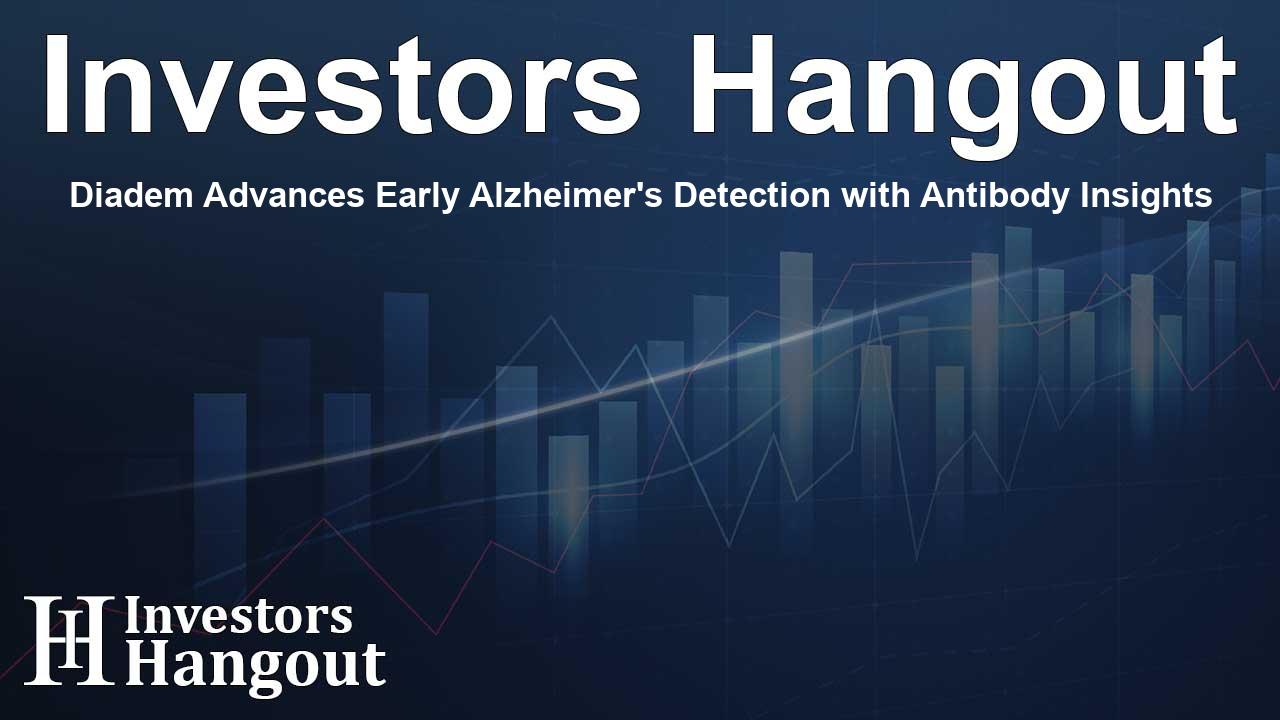Diadem Advances Early Alzheimer's Detection with Antibody Insights

Enhancing Alzheimer's Disease Detection
Diadem SpA has recently made significant strides in the field of Alzheimer's disease (AD) diagnostics. In collaboration with researchers from a prominent medical institution, notable findings were shared at a prestigious conference focused on clinical trials related to Alzheimer's. The research centered around U-p53AZ, a unique variant of the p53 protein that has profound implications for understanding the mechanisms of Alzheimer's disease.
Understanding U-p53AZ and its Importance
U-p53AZ represents a misfolded variant of the p53 protein that has been specifically linked to Alzheimer's. By utilizing a specialized antibody developed by Diadem, researchers were able to detect this protein in human brain samples. This innovative approach provides essential insights into the progression of AD, making it a promising tool for enhancing diagnostic accuracy.
Challenges in Alzheimer's Diagnosis
One of the greatest challenges in managing Alzheimer's is the complexity of cognitive decline in its early stages. The absence of reliable biomarkers complicates accurate diagnosis and treatment. Researchers have been focused on the misfolding of proteins, such as p53, as potential biomarkers for Alzheimer's. U-p53AZ has emerged as a significant marker that can potentially forecast the risk of cognitive decline, with studies indicating its relevance in blood plasma samples.
Innovative Methods and Findings
The latest research incorporated U-p53AZ antibodies to analyze brain tissues from patients reflecting various stages of AD progression. The antibody demonstrated a clear affinity for misfolded p53 proteins found in affected tissues while showing minimal interaction in normal tissues. This crucial finding highlights a direct correlation between the presence of U-p53AZ and the pathological features of Alzheimer's, particularly in relation to phosphorylated tau, another important marker of the disease.
Reinforcing Connections Between Proteins
The study’s outcomes suggest a compelling relationship between misfolded p53 and tau pathology, which indicates a possible interaction that could be pivotal for developing targeted diagnostic tools. According to leading researchers, this interaction underscores the need for further exploration into how these proteins may influence AD progression.
The Vision for the Future
Dr. Sam Agus from Diadem emphasized the significance of their findings, indicating that the detection of U-p53AZ not only clarifies the nature of p53 in Alzheimer's but also aligns with disease severity as determined by Braak stages, which track the spread of neurofibrillary tangles in Alzheimer's patients.
Clinical Implications and Next Steps
As the study builds on previous investigations, the potential clinical applications of U-p53AZ as a diagnostic tool appears to be substantial. Its ability to differentiate between normal and Alzheimer's-related p53 misfolding could revolutionize how medical professionals diagnose and approach treatment options for patients suffering from cognitive disorders.
In conclusion, Diadem SpA is setting a new precedent in the realm of Alzheimer's diagnostics. Their focus on early detection forms the cornerstone of their mission: to improve outcomes for patients with neurodegenerative diseases. As further research unfolds, the hope is that U-p53AZ will become an integral part of clinical practice in the near future.
Frequently Asked Questions
What did Diadem SpA present at the conference?
Diadem SpA introduced findings related to U-p53AZ, a variant of the p53 protein, highlighting its role in Alzheimer's disease diagnosis.
How does U-p53AZ contribute to Alzheimer's detection?
U-p53AZ serves as a biomarker that can detect misfolded p53 protein in brain tissues, enhancing the diagnostic process for Alzheimer's.
Why is early detection of Alzheimer's important?
Early detection can lead to timely interventions and improved patient outcomes, as it allows for better management of the disease.
What is the significance of the co-localization of p53 and tau proteins?
The co-localization suggests a potential interaction that may shed light on disease mechanisms and could inform new diagnostic strategies.
Who can be contacted for more information on Diadem?
For additional information, interested parties can reach out to Diadem's CEO, Michael Rasche.
About Investors Hangout
Investors Hangout is a leading online stock forum for financial discussion and learning, offering a wide range of free tools and resources. It draws in traders of all levels, who exchange market knowledge, investigate trading tactics, and keep an eye on industry developments in real time. Featuring financial articles, stock message boards, quotes, charts, company profiles, and live news updates. Through cooperative learning and a wealth of informational resources, it helps users from novices creating their first portfolios to experts honing their techniques. Join Investors Hangout today: https://investorshangout.com/
Disclaimer: The content of this article is solely for general informational purposes only; it does not represent legal, financial, or investment advice. Investors Hangout does not offer financial advice; the author is not a licensed financial advisor. Consult a qualified advisor before making any financial or investment decisions based on this article. The author's interpretation of publicly available data shapes the opinions presented here; as a result, they should not be taken as advice to purchase, sell, or hold any securities mentioned or any other investments. The author does not guarantee the accuracy, completeness, or timeliness of any material, providing it "as is." Information and market conditions may change; past performance is not indicative of future outcomes. If any of the material offered here is inaccurate, please contact us for corrections.









